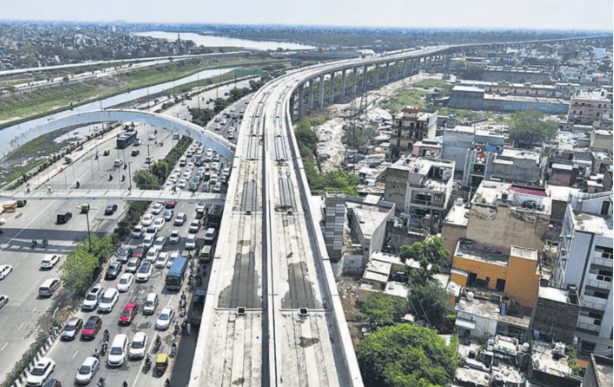The Delhi Metro Rail Corporation (DMRC) has announced the upcoming inauguration of a new 2.5-kilometre stretch on the Magenta Line. Scheduled for opening in July or August this year, this extension is a crucial part of the long-awaited Phase IV expansion, aimed at enhancing connectivity and easing daily commutes for thousands of passengers across the region.
The Magenta Line currently spans approximately 34.12 kilometres, connecting Janakpuri West to Botanical Garden with 25 stations. The new 2.5-kilometre extension will extend the line towards Krishna Park Extension. This section, constructed underground, is pending final approval from the Commissioner of Metro Rail Safety (CMRS) before it can commence operations. Phase IV’s completion will see the Magenta Line further extended by 29 kilometres, adding 22 new stations. The extended route from Janakpuri West will traverse significant areas, including Krishna Park Extension, Keshopur, Paschim Vihar, Peeragarhi, Mangol Puri, West Enclave, Pushpanjali, Deepali Chowk, Pitampura, Prashant Vihar, North Pitampura, Haiderpur Badli Mor, Bhalaswa, Majlis Park, Azadpur, Ashok Vihar, Derawal Nagar, Ghanta Ghar, Pulbangash, Sadar Bazar, and Nabi Karim, concluding at R K Ashram.
In addition to the Magenta Line extension, other key corridors under Phase IV include a 12.5-kilometre stretch from Majlis Park to Maujpur and a 23.6-kilometre stretch from Aerocity to Tughlakabad. The DMRC is also working on securing statutory approvals for two newly sanctioned corridors: Lajpat Nagar to Saket G-Block and Inderlok to Indraprastha. These routes are projected to accommodate an additional 250,000 passengers daily. Originally slated for completion by 2024, Phase IV faced delays due to the COVID-19 pandemic. The project is now expected to be fully operational by 2026, with some sections becoming accessible to the public by mid-2025. Despite the delays, Delhi Metro continues to experience a surge in ridership, reaching a record high of 6.017 million daily passengers in May. The DMRC operates over 4,200 train trips daily, covering approximately 140,000 kilometres, thereby significantly alleviating the city’s commuting challenges.


